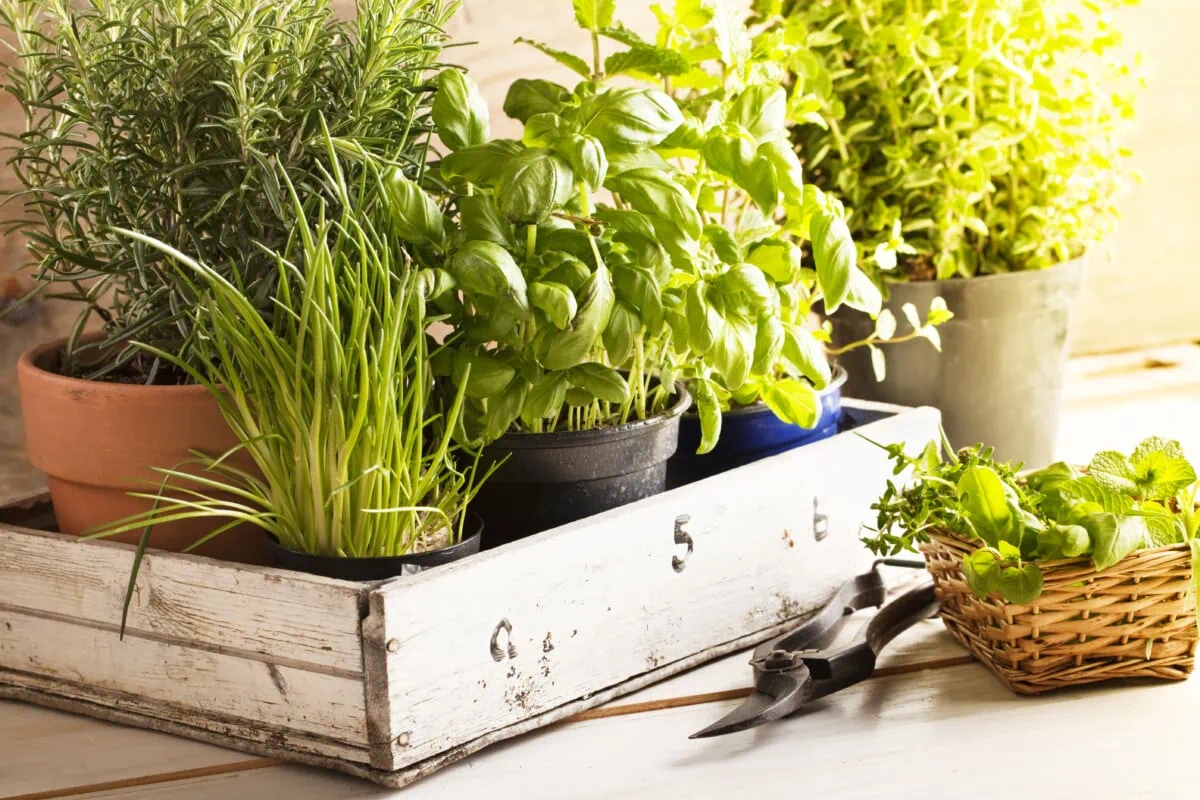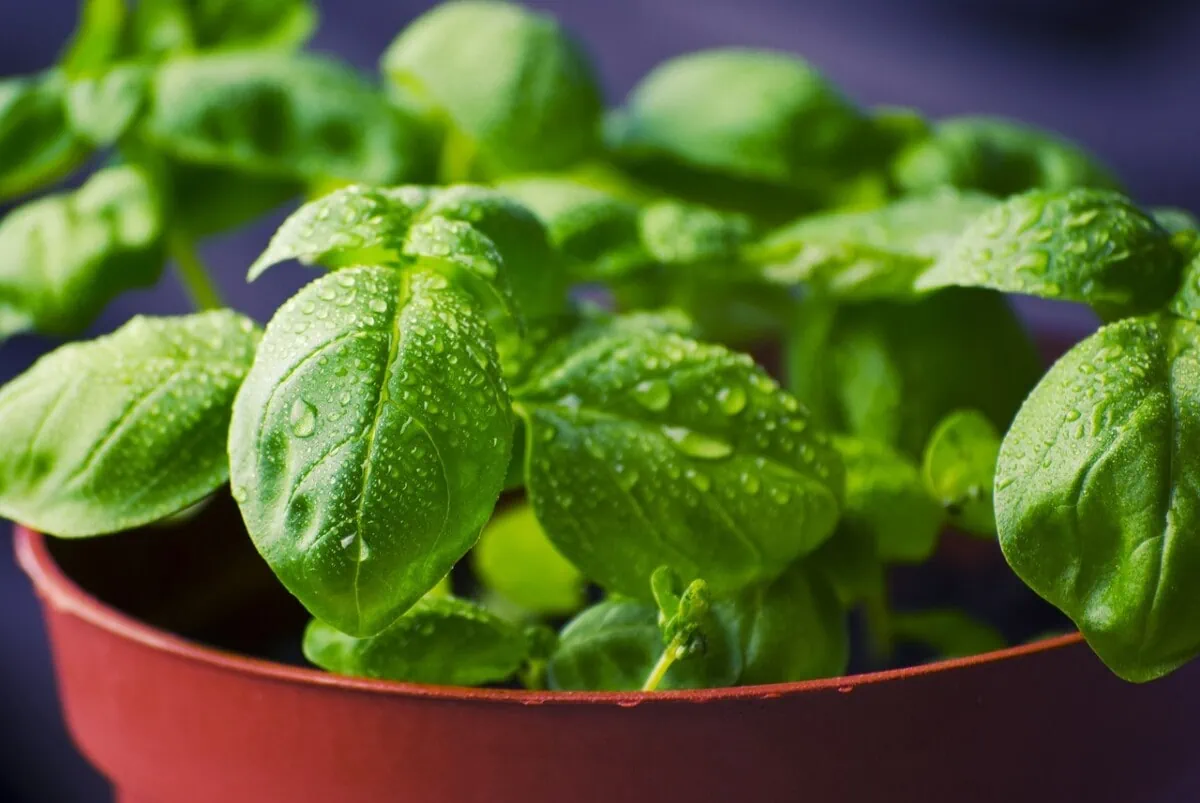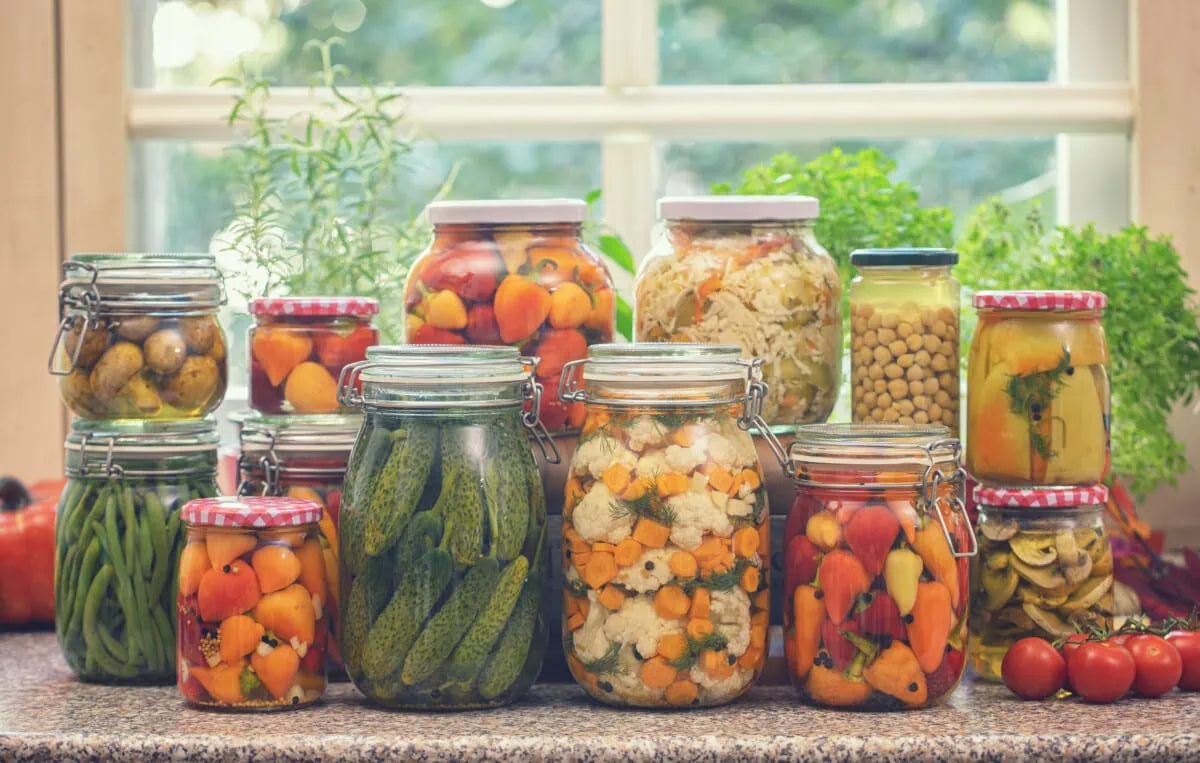Fresh herbs and vegetables infuse vibrant flavors and essential nutrients into our meals. However, improper storage can lead to premature wilting, loss of flavor, and even spoilage. To make the most of your garden harvest or farmers’ market finds, it’s crucial to know the right techniques for preservation. In this article, we’ve compiled nine expert tips to help you effectively store fresh herbs and vegetables in your kitchen. From simple tricks to innovative methods, these practices will not only extend the lifespan of your greens but also elevate the taste of your dishes. Let’s dive in and discover how you can keep your kitchen stocked with flavorful ingredients.
Tips for storing herbs
1. Store basil in a jar of water
Storing basil in a jar of water is crucial for preserving its freshness and flavor. This method keeps the herb hydrated, preventing wilting and ensuring that it retains its aromatic oils.
“It’s easy to store fresh basil, specifically the stems and leaves, in a jar of water on the kitchen counter,” says horticulturist Nina Koziol of Beauty and the Feast. “Fill the jar with an inch of water and remove any leaves that are under the surface. If I don’t use the basil immediately, the stems will grow roots, and I’ll have new plants to grow indoors.”
2. Wrap your herbs in a damp paper towel and seal in a snack bag
Wrapping herbs in a damp paper towel and sealing them in a snack bag helps maintain optimal moisture levels, preventing wilting and decay. This method creates a controlled environment that extends the herbs’ shelf life.
“To store fresh herbs in the fridge, the herbs should first be cleaned and remove any brown, wilted, or dry parts,” notes Zhi Herbals. “For optimum freshness and longevity, you’ll want to wrap them in a damp paper towel, then place the herbs and paper towel inside a sealed snack bag. Investing in silicone or beeswax plastic bag alternatives is worthwhile to help keep your fridge eco-friendly.”
3. Use a silicon bag
Using a silicone bag for herb preservation is great due to its airtight seal, which effectively locks in moisture and prevents exposure to air.
“The best way to store fresh herbs like basil, oregano, or parsley is to wash thoroughly and then place in a reusable silicone zip food storage bag with a small amount of water on your fridge door. The humidity inside the bag will keep your herbs hydrated, and the door of your fridge is the warmest part so that the cold won’t damage your herbs,” recommends The Cottage Peach.
4. Freeze your herbs
Freezing herbs is a crucial preservation method as it lets you capture their peak freshness, locking in flavor and nutrients.
Fresh Eggs Daily® with Lisa remarks, “Instead of drying herbs to use through the winter, you can freeze them. You can use a plastic baggie, but I save plastic berry boxes. Divide the fresh snipped leaves from basil, rosemary, thyme, mint, sage, oregano, etc. into separate berry boxes. Then, stack the berry boxes in the freezer. This way, the herbs retain their vibrant colors and shape. Defrost as needed to use in cooking.”





Leave a Reply